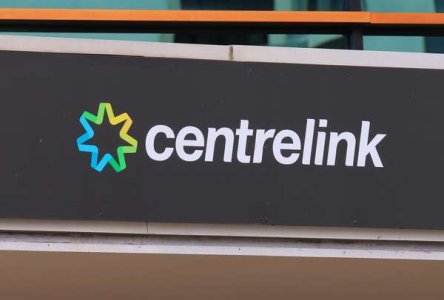Maryanne's battle with delayed jobseeker payments: Could this also be your struggle?
Accessing welfare payments from Centrelink has long been a trying experience for many of our members here at the SDC–and many could attest to the complications and frustrations of encountering bureaucracy in accessing financial assistance, even when your need is dire.
It's a situation that Maryanne Watts, a 60-year-old living in rural Queensland, grappled with while waiting months for her unavoidable and urgent jobseeker payments.
This is despite being a former Centrelink employee working for a small business assistance program.
As COVID-19 hit and Maryanne ran out of her early super drawdown, she applied for Jobseeker again, expecting a bumpy and exhaustive process. But even she was shocked at her difficult time, with the application undergoing lengthy delays that took months.
‘The first time it got held up was because they had asked for bank account details from the 23rd of February,’ Watts said. The earliest date on the bank statement she had submitted was March 9.
'I hadn’t actually had any transactions between the 23rd and the ninth. But because the date of the 23rd wasn’t on it, they didn’t accept it. So I had to go further back.'
Maryanne believed that this delayed her application, so she spent time trying to contact Centrelink, calling often and getting left on hold for lengthy periods.
'Every day, you try not to think about money, you try to get on with other stuff, whatever,' she says. 'But it’s always there. It’s this tension that’s always in your body.'
It got to a point where Centrelink’s contact service seemed to be at a standstill, with no one replying to her.
A couple of weeks later, this was further complicated when they asked her to provide an extra mortgage statement. The long wait came just as her bills piled up one by one.
Maryanne said she was told thrice that her application was marked ‘urgent’ due to financial hardship. Text messages came, promising someone would be in touch with her regarding her application.
‘But they didn’t,’ she said.
A Centrelink worker told her it was their policy to wait and have applicants call them instead.
Watts' struggles are not an isolated incident; instead, it highlights a common issue many applicants across Australia face.

According to Kristen O’Connell, a spokesperson for the Antipoverty Centre, this was mainly due to Centrelink's understaffing of call centres.
‘What we know from people who have an urgent need for support is that it is nearly impossible to get through the Centrelink bureaucracy to get that support as quickly as you need it,’ O’Connell pointed out. ‘This is not an outlier situation.’
Call waiting times have been ugly for over a year, with the 2021-2022 financial year data revealing a 25% increase in 'congestion messages'.
When you add incorrect recordings of applicants' information, missing notations regarding hardship, and conflicting advice from customer service representatives–it's no wonder why people have such a tough time applying for and receiving payments.
Maryanne's wait ended after an exhausting six weeks when her application finally got approved.
Unfortunately, some people had to wait longer than Maryanne. O’Connell said that her application for the disability support pension took ten months of back and forth. She had diligently followed up every two weeks for her claim, only to be told she needed to provide more information.
‘Because of all of the work I do supporting other people with this process, I know that I am not alone,’ O’Connell added.
Hank Jongen, Services Australia’s spokesperson, said that most Jobseeker claims were processed within two weeks.
‘We’re sorry to those who are waiting longer. This is our busiest time of year with tax time and millions of families balancing their payments,’ Jongen explained.
‘We sincerely apologise to Ms Watts and have extended the offer to work directly with her to ensure she’s receiving all available support.’
‘We’re actively recruiting, but our staffing is returning to more regular levels now that pandemic-era work and associated extra resourcing has concluded. We’ve bolstered our emergency response capability with 850 staff directly supporting frontline service delivery. We’re drawing from this to help meet current demands,’ he said.

Suppose you ever find yourself in a predicament like Maryanne's where your voice isn’t being heard or your information isn’t being considered. Take the necessary steps to ensure you won't miss out on the financial aid you are entitled to.
If a customer service agent has told you that your case hasn't been marked for urgent processing due to financial hardship, remain assertive and be persistent with your queries as you patiently wait for your payments, as you'll need plenty of evidence if you ever plan to present your case to a supervisor.
Inquire about any restrictions or loopholes regarding your payment, as understanding these documents would help make the overall process smoother.
Finally, don't forget that you have a right regarding welfare requests. Don't hesitate to contact the Antipoverty Centre should you have further questions or needs–they’ll happily hear you out and do what they can to ensure a satisfying resolution for all parties.
What do you think of this story, members? Have you encountered a similar predicament? Share your experience in the comments below!
It's a situation that Maryanne Watts, a 60-year-old living in rural Queensland, grappled with while waiting months for her unavoidable and urgent jobseeker payments.
This is despite being a former Centrelink employee working for a small business assistance program.
As COVID-19 hit and Maryanne ran out of her early super drawdown, she applied for Jobseeker again, expecting a bumpy and exhaustive process. But even she was shocked at her difficult time, with the application undergoing lengthy delays that took months.
‘The first time it got held up was because they had asked for bank account details from the 23rd of February,’ Watts said. The earliest date on the bank statement she had submitted was March 9.
'I hadn’t actually had any transactions between the 23rd and the ninth. But because the date of the 23rd wasn’t on it, they didn’t accept it. So I had to go further back.'
Maryanne believed that this delayed her application, so she spent time trying to contact Centrelink, calling often and getting left on hold for lengthy periods.
'Every day, you try not to think about money, you try to get on with other stuff, whatever,' she says. 'But it’s always there. It’s this tension that’s always in your body.'
It got to a point where Centrelink’s contact service seemed to be at a standstill, with no one replying to her.
A couple of weeks later, this was further complicated when they asked her to provide an extra mortgage statement. The long wait came just as her bills piled up one by one.
Maryanne said she was told thrice that her application was marked ‘urgent’ due to financial hardship. Text messages came, promising someone would be in touch with her regarding her application.
‘But they didn’t,’ she said.
A Centrelink worker told her it was their policy to wait and have applicants call them instead.
Watts' struggles are not an isolated incident; instead, it highlights a common issue many applicants across Australia face.

Kristen O’Connell believes the longer waiting time is due to Centrelink’s understaffed call centres. Credit: TK Kurikawa/Shutterstock
According to Kristen O’Connell, a spokesperson for the Antipoverty Centre, this was mainly due to Centrelink's understaffing of call centres.
‘What we know from people who have an urgent need for support is that it is nearly impossible to get through the Centrelink bureaucracy to get that support as quickly as you need it,’ O’Connell pointed out. ‘This is not an outlier situation.’
Call waiting times have been ugly for over a year, with the 2021-2022 financial year data revealing a 25% increase in 'congestion messages'.
When you add incorrect recordings of applicants' information, missing notations regarding hardship, and conflicting advice from customer service representatives–it's no wonder why people have such a tough time applying for and receiving payments.
Maryanne's wait ended after an exhausting six weeks when her application finally got approved.
Unfortunately, some people had to wait longer than Maryanne. O’Connell said that her application for the disability support pension took ten months of back and forth. She had diligently followed up every two weeks for her claim, only to be told she needed to provide more information.
‘Because of all of the work I do supporting other people with this process, I know that I am not alone,’ O’Connell added.
Hank Jongen, Services Australia’s spokesperson, said that most Jobseeker claims were processed within two weeks.
‘We’re sorry to those who are waiting longer. This is our busiest time of year with tax time and millions of families balancing their payments,’ Jongen explained.
‘We sincerely apologise to Ms Watts and have extended the offer to work directly with her to ensure she’s receiving all available support.’
‘We’re actively recruiting, but our staffing is returning to more regular levels now that pandemic-era work and associated extra resourcing has concluded. We’ve bolstered our emergency response capability with 850 staff directly supporting frontline service delivery. We’re drawing from this to help meet current demands,’ he said.
Key Takeaways
- Maryanne Watts, a 60-year-old from rural Queensland, has struggled to process her Jobseeker application for months despite being marked as 'urgent' due to financial hardship.
- Kristin O’Connell from the Antipoverty Centre highlighted that understaffing of Centrelink's call centres and long waiting times were significant hurdles for those in urgent need. She also endured a long process for her disability support pension.
- Watts' experience is not an isolated one, with Centrelink call waiting times having increased
by 25% over the past year.
- Despite apologies from Services Australia's spokesperson and assurance of additional recruitment, delays continue and directly impact the lives of applicants like Maryanne Watts.
Suppose you ever find yourself in a predicament like Maryanne's where your voice isn’t being heard or your information isn’t being considered. Take the necessary steps to ensure you won't miss out on the financial aid you are entitled to.
If a customer service agent has told you that your case hasn't been marked for urgent processing due to financial hardship, remain assertive and be persistent with your queries as you patiently wait for your payments, as you'll need plenty of evidence if you ever plan to present your case to a supervisor.
Inquire about any restrictions or loopholes regarding your payment, as understanding these documents would help make the overall process smoother.
Finally, don't forget that you have a right regarding welfare requests. Don't hesitate to contact the Antipoverty Centre should you have further questions or needs–they’ll happily hear you out and do what they can to ensure a satisfying resolution for all parties.
What do you think of this story, members? Have you encountered a similar predicament? Share your experience in the comments below!








